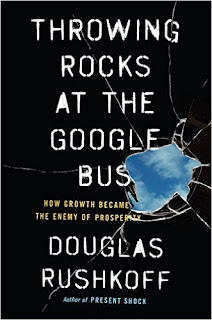 |
James Stewart was housebound in Alfred Hitchcock’s Rear Window
|
If you’re like many “Boomers”, when opportunity knocked you moved many miles away from your hometown to take advantage of career opportunities. That meant leaving family behind. Of course, it didn’t matter that much back then. Everyone was younger and healthier.
Today, if you are lucky to still have them, Mom, Dad, siblings, other family members, friends and loved ones have somehow gotten older and maybe even housebound. (1.)
For any number of reasons, they need assistance at home and you are not there to help out.
Famous for being a world loser when it comes to healthcare, The United States is even more of a loser when it comes to helping homebound citizens recuperate or age at home. You are pretty much on your own unless you have family and / or friends to bring you food, cook, clean or help you with personal hygiene – let alone make sure you take the correct medications, eat the right food and follow your prescribed rehabilitation therapy.
Even if you are lucky enough to qualify for a visiting nurse or aide you will still need a lot more help just to get through the day.
Recently, while I was searching for help for a homebound friend, I discovered
United Way Worldwide. They are making a tremendous effort to fill the healthcare connection gap through their
2-1-1 program. While I didn’t find a program here in Southeastern Michigan (
United Way Southeastern MI does help you connect to a multitude of services) for calling my friend at home each day, I did find that nonprofits in some communities are operating such programs for their citizens.
 |
Nat Price volunteers with the 211 Helpline as a Sunshine
Program caller. Price, 100, makes daily phone calls
to housebound senior citizens. Credit :Palm Beach Post |
For example,
Palm Beach, FL and the Treasure Coast Counties, are blessed with the nonprofit, 211 Helpline Sunshine Program, through which volunteers phone the housebound on a regular basis to check to see how they are doing. It’s the one-on-one contact which appeals to me. At least someone is talking with your loved one and listening for signs of health deterioration, such as slurred speech, fatigue or disorientation. And, if there is no answer, the volunteer can call for help and have someone visit the homebound person.
From
100-year-old volunteer connects with housebound seniors, Janis Fontaine,The Palm Beach Post, 23 July 2015:
“(Nat) Price is a devoted volunteer for the 211 Helpline, a national nonprofit referral service that connects people in need with someone who can help them, just by dialing 211 on any phone, 24 hours a day. Price works as a Sunshine Program caller, making daily phone calls to housebound seniors just to say hi and to check on their well-being. The local program has 24 volunteers and one full-time supervisor who call more than 500 seniors every day.”
“Some might want to chat, others just say, ‘Hello,’ and ‘I’m okay’ and hang up. That’s fine with Price and the others, because that two-second phone call is enough to reassure family members that their loved one is okay, and it gives peace of mind to the seniors that someone will notice — and take action — if they don’t answer. If a caller can’t reach someone, a supervisor gets involved. In about 10 cases each year, that intervention has rescued a senior in crisis.”
“The Sunshine Program volunteers get to know these people so intimately, they may pick up on just the smallest change. When an alert Sunshine caller heard a woman she knew well slurring her words, she told her supervisor who sprang into action. The women was having a stroke. Thanks to the alert caller, she got the help she needed.”
“Another benefit of the program is that people can continue to live at home, Price says, and stay as independent as possible, which is important to Price, too.”
To directly address the “housebound” challenge, the Japanese adopted a program called Fureai Kippu, “caring relationship tickets”. In operation since 1995, Fureai Kippu is an electronic currency. The program is designed to facilitate a person to earn credits by caring for a local person who is in need of care or assistance. As Fureai Kippu service hours accumulate they can be saved for the individual’s own use in the future, or transferred to someone of their choice, such as a parent or family member who lives elsewhere in the country and who needs similar help.
“Currently, some 374 non-profit organizations in Japan are issuing and participating in exchanging Fureai Kippu across the country through two computerized clearing houses.”
“A surprising part of the project has been that the elderly tend to prefer the services provided by people paid in Fureai Kippu over those paid in yen. Those surveyed all agreed that to convert this community service to yen would dilute the sense of community and genuine care based on compassion.” (2.)
Since we don't yet have a Fureai Kippu program here in the U.S., I think my friend could greatly benefit from a local 2-1-1 Sunshine Program. Do you have a friend who could, as well?
1.
About 70 % of those using home healthcare services are age 65 and older. In this age group, the most common medical conditions requiring home care are: heart disease, diabetes, and cerebral vascular diseases.
Over 1/3 of the persons requiring in-home care are under age 60, availing assistance for rehabilitation, are disabled, or have chronic health conditions, often requiring patient aids for assistance.
A majority, 80 %, of those over age 60, choose to live independently, in comfort and with an enhanced quality of life. Source: The US Home Healthcare Industry Overview and Trends – 2009
2.
Fureai Kippu – Compassion is the new currency, ADMIN, Gratis Basis, 4 Jul 2013.








